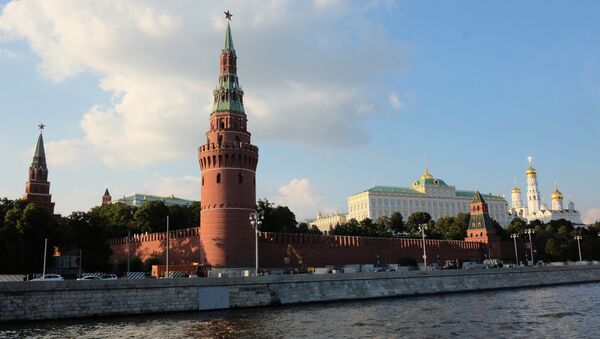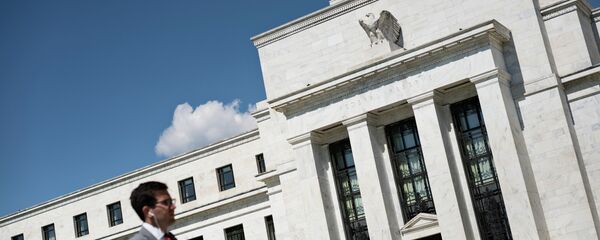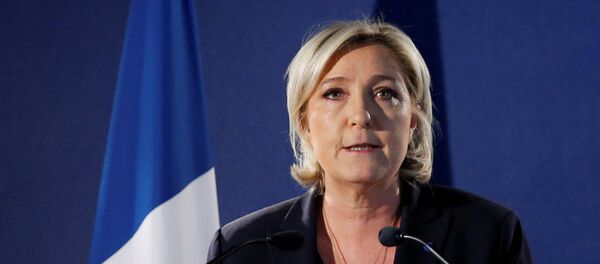US Banking Plot to Take Over Russia
New York investment bankers staged a "financial coup" against Russia in the late 1990s, world famous financial analyst Martin Armstrong said in an interview with Sputnik Germany.
The main goal was to make Russia dependent on US money in the long term, he argued.
According to Armstrong, Russian billionaire and oligarch Boris Berezovsky played a key role in this process. The analyst also said that the head of the Republic National Bank of New York and the US fund Hermitage Capital, Edmond Safra, was the one who funded the whole wire.
"Whether the US government was involved, I'm not entirely sure. But the bankers definitely were. And what they were after is basically they got Yeltsin to steal effectively 7 billion dollars from IMF loans."
"Then the prosecutors immediately went to the Bank of New York and then they threatened Yeltsin and said: look, you resign and put this guy Berezovsky and everything will be fine. And Yeltsin at that stage realized that this all was a set up."
In Armstrong's opinion, that's when he turned to the young Vladimir Putin, who confiscated all assets of Hermitage Capital in Russia.
Armstrong's Imprisonment
The analyst revealed that New York bankers urged him to participate in the "financial coup" against Russia.
"They tried to get me to invest in Hermitage Capital and I declined. I said: look, this is gonna collapse, it's not gonna work. They wanted me to put in ten billion dollar, and I said no I'm not up with my clients' money into it. I refused,' Armstrong said.
"When they started this nonsense about me, I told them ‘look, Republic stole the money.' And the government said ‘we believe Republic'. I said Ok, fine, and I did an interview in Japan with the Japan press," the expert recalled, adding that during his interview he told the truth, and right afterwards he became the target of US intelligence.
READ MORE: Trump's Aide Advised to Cut US Presence Near Russian Borders in 2017 — Reports
The analyst argued that the US authorities detained him because of his refusal to collaborate. He served a prison sentence from 1999 to 2011.
US intelligence agencies have repeatedly tried to lure out his secret formula that helped him to predict the 1998 financial crisis in Russia, financial crises in 2007 — 2009 and the crisis of euro, but the analyst refused.
"When Russia collapsed, that's when the CIA basically came in and said: look, we want this model. We offered to provide forecasting for them, and they basically said no they had to own it. And that's why I said ‘no.'"
Euro Crisis and Crypto Currencies
The main problem, as Armstrong sees it, is that the European Central Bank (ECB) failed to consolidate the euro at the right time.
"The idea of the euro actually was presented by the United States back in 1985. And they were arguing Europe should consolidate, create a single currency to compete with the dollar, because the dollar kept going up to high," the analyst said.
"When the euro was being formed, they actually came to me…and I said: look, the only way you can compete against the US dollar is you have to have a consolidated debt. And I was told back then in 1988 they didn't think the European people would vote for that. So they just want to get the currency through first, once they got the currency through they said they would deal with the debt secondly, which they never did."
In addition, the analyst believes that there should be only one central bank within the Eurozone. As all members still have their own central banks, the whole structure is very much disorganized, and leads to a chaos within the monetary union.
READ MORE: Cryptocurrency Market Plunges In Wake of S Korean Regulatory Crackdown
At the same time, the analyst strongly doubts that crypto-currencies like Bitcoin have a future in the long run as well.
"The crypto currency is not something that is going to really be long-term viable. You can't really use it," Armstrong said, adding that governments would certainly not allow other currencies that could potentially threaten national currencies to emerge on the financial market.
The views expressed in this article are solely those of the speaker and do not necessarily reflect the official position of Sputnik.



